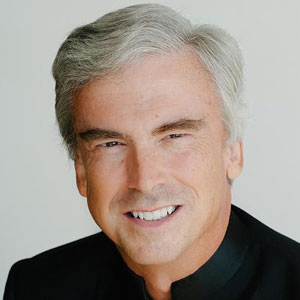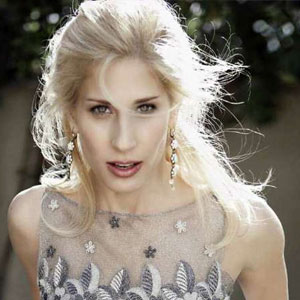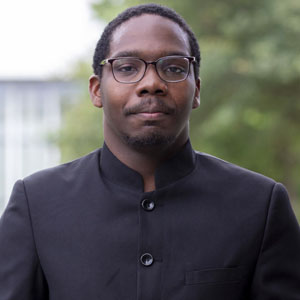IN THIS CIRCLE
Tuesday, January 16, 2024, 7:30pm
Meyerson Symphony Center + Livestream
Jerry Junkin, Artistic Director & Conductor

In his 30th season as Artistic Director and Conductor of the Dallas Winds, Jerry Junkin is recognized as one of the world’s most highly regarded wind conductors. He has served as Music Director and Conductor of the Hong Kong Wind Philharmonia since 2003, and Principal Guest Conductor of the Senzoku Gakuen College of Music Wind Symphony in Tokyo since 2007. Additionally, 2021-2022 marks his 34th year on the faculty of The University of Texas at Austin, where he holds the Vincent R. and Jane D. DiNino Chair for the Director of Bands. There, he also holds the title of University Distinguished Teaching Professor. Previously, he served on the faculties of both the University of Michigan and the University of South Florida. In addition to his responsibilities as Professor of Music and Conductor of the Texas Wind Ensemble, he serves as Head of the Division of Conducting and Ensembles and teaches courses in conducting and wind band literature. He is a recipient of multiple teaching awards, and students of Mr. Junkin hold major positions throughout the world.
Performances under the direction of Mr. Junkin have won the praise of such notable musicians as John Corigliano, David Del Tredici, Gunther Schuller, Karel Husa, William Kraft, Jacob Druckman and Michael Colgrass, among many others. Mr. Junkin has released over 30 compact disc recordings for the Reference, Klavier and Naxos labels. The New York Times named his release on the Reference Recordings label, Bells for Stokowski, one of the best classical CD’s of the year. His performance of Circus Maximus with The University of Texas Wind Ensemble was released on the world’s first Blu Ray audio disc in 5.1 surround sound by Naxos and was nominated for a GRAMMY. During the summer of 2014, he led The University of Texas Wind Ensemble on a four week tour around the world.
Mr. Junkin is an enthusiastic advocate of public school music education, having conducted All-State bands and festivals in forty-eight states and on five continents. He spends his summers in residence at the Interlochen Arts Camp in Michigan, as well as appearing at major music festivals throughout the world.
Mr. Junkin has served as President of the Big XII Band Director’s Association and is a member of the Board of Directors of The John Philip Sousa Foundation, is Past-President of the American Bandmasters Association, and is Past President of the College Band Directors National Association. Regularly making guest appearances with ensembles such as the Tokyo Kosei Wind Orchestra and the Taipei Symphonic Winds, he continues to conduct throughout the United States in addition to multiple appearances in Japan, China, and Europe. In 2005, he was presented the Grainger Medallion by the International Percy Grainger Society in recognition of his championing of Grainger’s works, and he has received numerous career awards from Kappa Kappa Psi, Phi Beta Mu, and the Midwest Clinic, among others. Mr. Junkin is a Yamaha Master Educator.
Hila Plitmann, Guest Vocalist

Growing up in her native Jerusalem as the daughter of a Hebrew University botany professor and a musicologist mother, she was immersed in music from a young age and developed a love of all genres. In addition to her performances of traditional repertory, she has been called “a composer’s dream” (Star Tribune, MN), and is widely-recognized as one of today’s foremost interpreters of contemporary music. She has partnered with diverse array of composers, regularly premiering or featuring new works, such as the staged version of Frank Zappa’s 200 Motels; Emmy Award-winner Jeff Beal’s The Paper Lined Shack, Andrea Clearfield’s The Long Bright, Pulitzer and Grammy Award-winner Aaron Jay Kernis’ Two Awakenings and a Double Lullaby, Esa-Pekka Salonen’s Wing on Wing, numerous works by Grammy- and Oscar-winning John Corigliano, and music by Xiaogang YE, Paola Prestini, Danaë Vlasse, and dozens of others.
Only one year after graduating from Juilliard, she gave her first World Premiere – and on only two weeks’ notice – with the New York Philharmonic, in Pulitzer Prize-winner David Del Tredici’s The Spider and the Fly. Since then, her appearances as soloist traverse the globe, and have included the Los Angeles, New York, and Israel Philharmonics, Chicago, Boston, London, BBC, National, St. Louis, Atlanta, Detroit, Hamburg, Stockholm, and Melbourne Symphonies, Minnesota Orchestra, and Orpheus Chamber Orchestra. She collaborated with some of the world’s foremost conductors, such as Leonard Slatkin, Esa-Pekka Salonen, Kurt Masur, Marin Alsop, Thomas Adès, Giancarlo Guerrero, and Robert Spano.
She can also be heard as the featured vocal soloist on the feature-film soundtracks for The Da Vinci Code, Pirates of the Caribbean: On Stranger Tides, Hail Caesar, and Batman v. Superman: Dawn of Justice. Her discography includes Oscar-winner John Corigliano’s song-cycle Mr. Tambourine Man (for which she won the Grammy for “Best Classical Vocal Performance”), Andrea Clearfield’s Women of Valor with Tovah Feldshuh, Richard Danielpour’s Toward a Season of Peace and the Grammy Award-winning Passion of Yeshua, Eric Whitacre’s Good Night Moon, and George Benjamin’s Into the Little Hill, among many others. MORE >>>
Quinn Mason, Guest Composer

Praised as “One of the most sought after young composers in the country” (Texas Monthly), composer and conductor Quinn Mason (b. 1996) has distinguished himself as an artist of national and international renown. He recently finished a successful tenure as Artist in Residence of the Hartford Symphony Orchestra for the 2022-2023 season. He also recently served as the Detroit Symphony Orchestra’s Classical Roots composer in residence in 2022 (the youngest composer appointed to that role) and as KMFA 89.5’s inaugural composer in residence.
His orchestral music has been commissioned and performed by over 160 professional, regional, community and youth orchestras in the US and Europe, including the San Francisco Symphony, Minnesota Orchestra, National Symphony Orchestra, Cincinnati Symphony Orchestra, Seattle Symphony, Dallas Symphony Orchestra, Detroit Symphony Orchestra, Fort Worth Symphony Orchestra, Rochester Philharmonic Orchestra, Utah Symphony, National Youth Orchestra of the United States and numerous others, including Italy’s Orchestra Sinfonica Nazionale della RAI, UK’s Sheffield Philharmonic Orchestra and Scotland’s Nevis Ensemble.
As a conductor, Quinn made his major orchestra debut with the National Symphony Orchestra at the Kennedy Center at age 27. He studied conducting at the National Orchestral Institute with Marin Alsop and James Ross, at the Eastern Music Festival with Gerard Schwarz, José-Luis Novo and Grant Cooper and with Christopher Zimmerman and Miguel Harth-Bedoya. Quinn has guest conducted numerous orchestras around the country, including the West Virginia Symphony Orchestra, Inner City
Youth Orchestra of Los Angeles, Harmonia Orchestra, MusicaNova Orchestra and the Greater Dallas Youth Orchestra. He also recently served as the Houston Ballet Orchestra’s youngest ever guest conductor.
His music has also received significant radio play. He served as KMFA 89.5’s inaugural composer in residence and has had his music broadcast on NPR in the US, CBC in Canada, BBC in London, ORF in Vienna, RAI in Italy, in countries such as Switzerland, Hungary, Latvia and many others.
His chamber music has been presented by celebrated organizations such as Voices of Change, Midsummer’s Music, The Cliburn, One Found Sound, loadbang, MAKE trio, Atlantic Brass Quintet, Axiom Brass, and the Cézanne, Julius, Invoke and Baumer string quartets.
A multiple prize winner in composition, he has received numerous awards and honors from such organizations as the American Composers Forum, Voices of Change, Texas A&M University, ASCAP, the Dallas Foundation, Dartmouth College Wind Ensemble, National Flute Association, the Metropolitan Youth Orchestra of New York, the Philadelphia Youth Orchestra, the Heartland Symphony Orchestra and the Arizona State University Symphony Orchestra. In 2020, Quinn was honored by the Dallas Morning News as a finalist for “Texan of the Year.”
Fanfare
7:15pm, Meyerson lobby
To Usher in a New Era
Shawn Gurk
Dallas Winds Brass & Percussion
Jeremy Kondrat, conductor
Program
A Joyous Trilogy [15’00”]
Quinn Mason
I. Running
II. Reflection
III. Renewal
Symphony No. 4, “Strange Time” [23’00”]
Quinn Mason
I. Passages of Time
II. The Divide Between Light and Dark
III. Toward the Event Horizon
IV. Time Frozen
V. Out of Time
Bradley Hunter Welch, organ
— INTERMISSION —
Lola Flores [3’50”]
Alfred Sadel & Terig Tucci, arr. John Krance
In This Circle [23’00”]
Hila Plitmann, Composition & Lyrics
Drew Dickey, Setting & Orchestration
Hila Plitmann, soprano
1. Wave
2. The Art of Flying
3. Outbreath
Dallas Winds Personnel
PICCOLO
Margaret Shin Fischer
FLUTE
Martin Godoy, principal
Kathy Johnson
OBOE
Nathan Ingrim, principal
Abigail Hawthorne
ENGLISH HORN
Aryn Mitchell
E♭ CLARINET
Jake Hale
B♭ CLARINET
Deborah Fabian, concertmaster
Sharon Knox Deuby, associate principal
Mary Druhan
Jeanie Murrow
Andre Canabou
Michael Manning
Bonnie Dieckmann
Kristen Thompson
Jake Hale
BASS CLARINET
Mickey Owens
CONTRA CLARINET
Robin Owens
BASSOON
Marty Spake, principal
Spencer Wilson
SOPRANO SAXOPHONE
Donald Fabian
ALTO SAXOPHONE
Donald Fabian, principal
David Lovrien
TENOR SAXOPHONE
Roy E. Allen, Jr.
BARITONE SAXOPHONE
John Sweeden
HORN
Joseph Charlton, principal
Eric Hessel
Derek Wright
Benjamin Ruiz
Trenton Carr
TRUMPET
Tim Andersen, principal
James Sims
Peter Stammer
Daniel Kelly
Jared Hunt
Jared Broussard
TROMBONE
Jacob Muzquiz, principal
James McNair
BASS TROMBONE
Michael Lawson
EUPHONIUM
Grant Jameson, principal
Donald Bruce
TUBA
Jason Wallace, principal
Juan Alonso
STRING BASS
Andrew Goins
PIANO
Cameron Hofmann
HARP
Naoko Nakamura
TIMPANI
Jacob Hord, principal
PERCUSSION
Roland Muzquiz, principal
Michael McNicholas
Joe Ferraro
Steve McDonald
Brandon Kelly
Steve Kimple
PERSONNEL MANAGER
Gigi Sherrell Norwood
MUSIC LIBRARIAN
Chrystal Stevens
TECHNICAL DIRECTOR
Ramon Muzquiz
FOUNDER / EXECUTIVE DIRECTOR
Kim Campbell
EXECUTIVE ASSISTANT
Grace Lovrien
DIRECTOR OF CONCERT OPERATIONS
Gigi Sherrell Norwood
DIRECTOR OF EDUCATION
Todd Toney
BOOKKEEPER
Lenore Ladwig Scott
Livestream
Scott Probst – Audio Engineer
Christopher Cook – Remote Cameras
Cameron Conyer – Technical Engineer
Adam Ellard – Director
Savannah Ekrut – Switcher, Camera Operator
Lydia Amstutz – Titles
Todd Toney – Score Reader
Lydia Amstutz – Camera Operator
David Lovrien – Title Design
Program Notes
A Joyous Trilogy
Quinn Mason
Composer Quinn Mason “wanted to create a composition that was the very embodiment of happiness and cheerfulness, an accessible work that would put any listener in a good mood.”
The first movement, ‘Running’ has an always-moving and never-waning energy that keeps going and going. The second, ‘Reflection,’ is a gentle and introspective meditation featuring solo trombone. The third, ’Renewal,’ picks the energy back up, a little more spirited and zestful this time, and keeps it going to the very end, complete with dynamic and vibrant interplay between all the orchestral sections.
Quinn Mason dedicated this work to “Will White, a friend and mentor for many years now, and one of the most joyous people I know!”
– Jeff Eldridge (Principal Bassoon, Harmonia Orchestra)
This transcription was created especially for and dedicated to Prof. Jerry Junkin and the University of Texas Wind Ensemble.
Symphony No. 4, “Strange Time”
Quinn Mason
When I was a student at SMU, I was quite suddenly commissioned by Dr. Jack Delaney (director of bands) on the following terms: no instrumentation limit and no time limit. I decided that I wanted to compose a large-scale work using an expanded wind ensemble (with harp and organ, two tubas and an English horn and contrabassoon in the woodwinds) that reflected my interest of time travel and space/time phenomena. It’s something that I have been fascinated with for a while and curious as to whether it would work in a musical context. The first thing I had to do was my research. I remember when I was younger reading books such as H.G. Wells’ The Time Machine and Jon Scieszka’s series Time Warp Trio, which then inspired me to research paradoxes such as the Predestination Paradox and the Grandfather Paradox. The idea that one little action you take in the past can alter the future significantly appealed to me, and piqued my curiosity.
I embarked on this composition to create a piece that was in the same vein as a David Maslanka symphony and intended as a companion piece to his own fourth symphony, while at the same time reflecting my own unique interests and voice. I had the good fortune of working with Dr. Maslanka briefly in February 2017, when he shared with me his philosophy and perspectives on the humanity of music, which changed my entire approach to composition and music making. In a way, this symphony is a ‘thank you’ to Dr. Maslanka for inspiring me.
Then came the composition of the piece. I knew that I wanted to depict a journey into a space time continuum complete with a trip into an event horizon. I wanted to challenge the very idea of the perception of time and reality in a musical setting.
My symphony is set in five movements played continuously without pause. The first, Passages of Time, begins with a murmuring line in the woodwinds, which continues as the brass enter with a solemn fanfare, depicting the time traveler. This chorale is heard in four out of the five movements, and acts as the catalyst that affects all the musical events around it.
The second movement, The Divide Between Light and Dark, contains contrasting sections of brightly colored and darkly hued music. Here, we’ve arrived in the time space continuum and are looking at contrasting universes.
In the third movement, we take a trip Toward an Event Horizon. The feel of this music is frantic and energetic, as it doesn’t know whether it wants to speed up or slow down. As a result, some instrumental voices push ahead in the texture; others fall back. In theory, when one approaches an event horizon, the person observing the subject entering it sees them slow down before they come to a complete stop. However, to the subject entering, they are actually speeding up. So how did I represent this in the music? Near the end of this movement, the music has the sensation of speeding up but the conductor’s beats slow down until the music comes to a complete stop. Most unusually, this movement contains a battle between two Tam-tams (gongs).
The fourth movement, Time Frozen, isn’t conducted at all. The erratic nature of the third movement and steadily building brass chorale from the first movement has pushed the music over the edge and into a void. As this music is completely aleatoric, I encourage the musicians to improvise to give the music a sense of timelessness.
In the fifth and final movement, we’re Out of Time. After the timelessness of the fourth movement, we return to order but less rigid and more freely. The brass chorale returns again twice, this time quieter and tranquil before the music fades into abyss and we’re left with the return of the murmurings of the first movement. This fades into a calm woodwind chorale with solo celesta flourishes, and finally ends with a distant organ to ponder the journey that we’ve just been on. In the vein of Mahler’s ‘Das Abschied’ (from Das Lied von Der Erde), It reminds us that time is fleeting and comes to an end eventually.
— Compiled by Dave Strickler, elaborated by Quinn Mason
Lola Flores (Paso Doble)
Alfred Sadel and Terig Tucci, arr. John Krance
In Spanish-speaking countries, the popularity of the Paso Doble (“double-step”) as a dance is inherent and perennial. The especial spirit and melodic appeal of the Argentine composer, Terig Tucci, have captured the imagination of international audiences. One of Tucci’s most famous Paso Dobles is Lola Flores. Here can be found all the color and excitement of the bullring. One can instantlyh visualize the eager anticipation of the crowd and the pride and pageantry of the matadors majestically entering the ring. In arrangeing Lol Flores for Concert Band I have attempted to capture, expand and project all of these dramatic qualities embodying today’s television, recirding, and film “sound”.
– John Krance
In This Circle
Hila Plitmann, orch. Drew Dickey
